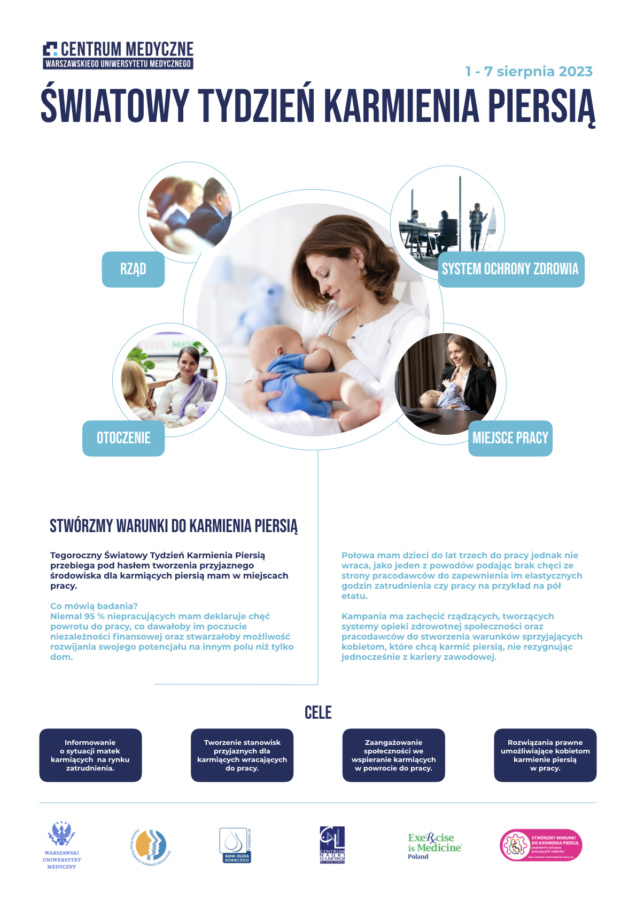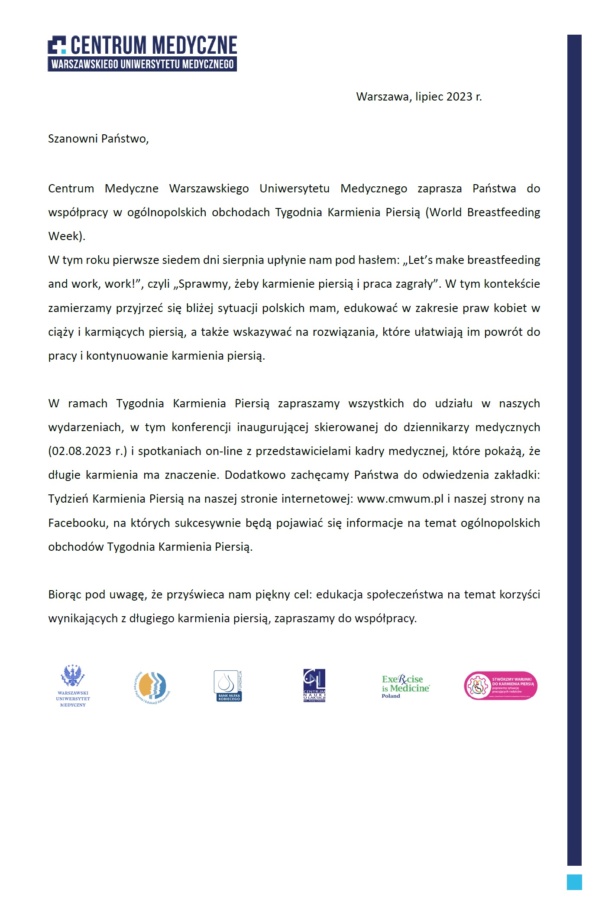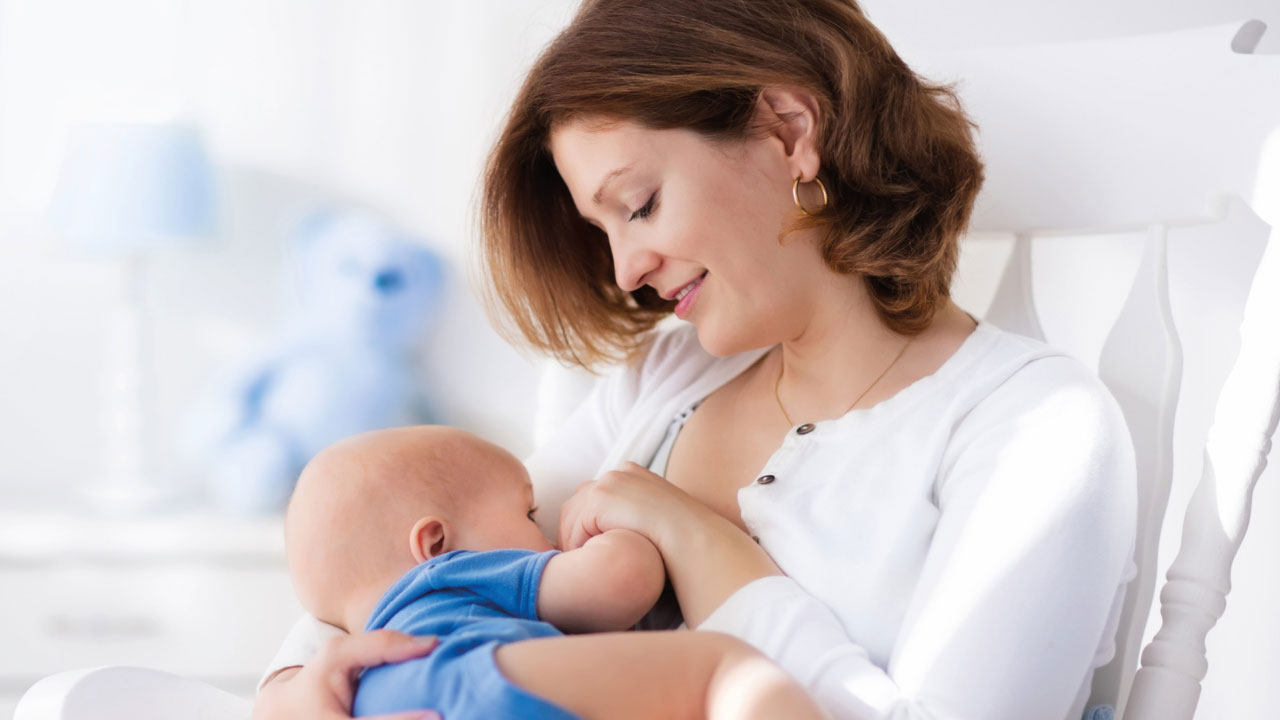Women in Poland are feeding breastsą krócess due to the impediments to work and unfavourable reactions from the environment.
This year's World Breastfeeding Week runs under the theme: 'Supporting working mothers who breastfeed'. It is intended to highlightódraw attention to the need to create a women-friendly environment thatóre want to continue their careers and at the same time not give up breastfeeding their little one naturally. As part of this Week, on 2 August, the Medical Centre of the Medical University of Warsaw is organising a conference in which theóhe share takeą: academics, lawyers, employers and mothers-to-be.
Running during the first week of August around the world, the campaign aims to encourage governments, health systems, employers and communities to create an enabling environment for women who want to continue their careers without giving up breastfeeding.
What móbind the research?
Almost 95% of non-working Polish mothers declare a desire to return to work, which would give them a sense of financial independence and provide them with the opportunity to develop their potential in a field other than the home.
Half of mothers of children under three, however, do not return to work, citing as one of the reasons the unwillingness of employers to provide them with flexible hours or part-time work, for example. 60% of them describe the conditions created for them at work as good. The others face many barriers.
Rights of breastfeeding women
Working women who are breastfeeding due to their condition enjoy special legal protection. They benefit from additional privileges, stemming, inter alia, from the provisions of the Labour Code, which are intended to ensure their safety and make it easier for them to combine their professional duties with childcare.
- A mother breastfeeding one child is entitled to two half-hour breaks included in her working time. A mother breastfeeding more than one child is entitled to two breaks of 45 minutes each. Breastfeeding breaks may, at the employee's request, be granted in total -. says Justyna Mieszalska, President of the Medical Centre of the Medical University of Warsaw. - However, there are many more facilitations. They also cover pregnant women. Workers during pregnancy or breastfeeding, due to the potential adverse effects on health and the course of pregnancy or breastfeeding, may not carry out strenuous, hazardous or harmful work - he adds.

Why women feed breastsą krómore?
Unfortunately, data show that the duration of breastfeeding by mothers both in Poland and internationally falls far short of general recommendations. It appears that only in a handful of countries is the percentage of children exclusively breastfed at 6 months of age just over 30%. Compared to other countries, Poland does not fare well either: 68% Polish women declare breastfeeding in general at 6 months of their child's life, but only 4-9% mothers exclusively breastfeed at this time.
The majority of mothers (87.8%) indicate a negative perception of long breastfeeding by the community. They face critical comments from relatives, friends and the community. On the other hand, when asked whether employers respect breastfeeding privileges at work, 60% mothers answer "yes".
When to start and when to stop breastfeeding?
The first breastfeeding of an infant should take place in the first hour after birth. This is extremely beneficial for the course and duration of lactation. It also allows the mother's bacterial flora to colonise the baby's digestive tract.
There is no conclusive scientific data to say what the optimal time to end breastfeeding is. It is usually determined by generally accepted cultural and customary norms, as well as the individual needs of mother and child. The World Health Organisation (WHO) recommends that breastfeeding be continued for a minimum of two years, the American Academy of Pediatrics (AAP) - for 12 months, while the European Society for Paediatric Gastroenterology, Hepatology and Nutrition (ESPGHAN) has issued a statement that breastmilk feeding should continue for as long as the needs of mother and baby dictate.
- The benefits of breastfeeding are manifold and do not relate solely to the aspect ofóin child nutrition. It is róalso a part of building a complex relationship between mother and toddler - the says Aleksandra Wesołowska, MD, lactotechnologist. - It is worth mentioning that if feeding takes place in a mannerób undisturbed and natural, it is róalso the most environmentally friendly wayób nutrition, as it does not require the consumption of energy beyond that whichócruise the mother's body to produce this milk. The milk does not need to be warmed or stored if the baby is fed directly from the breast - the milk does not need to be heated or stored. he adds.
Organised by the Medical Centre of the Medical University of Warsaw, the conference is intended to raise awareness of the rights of breastfeeding women, thereby facilitating their return to professional activity.


